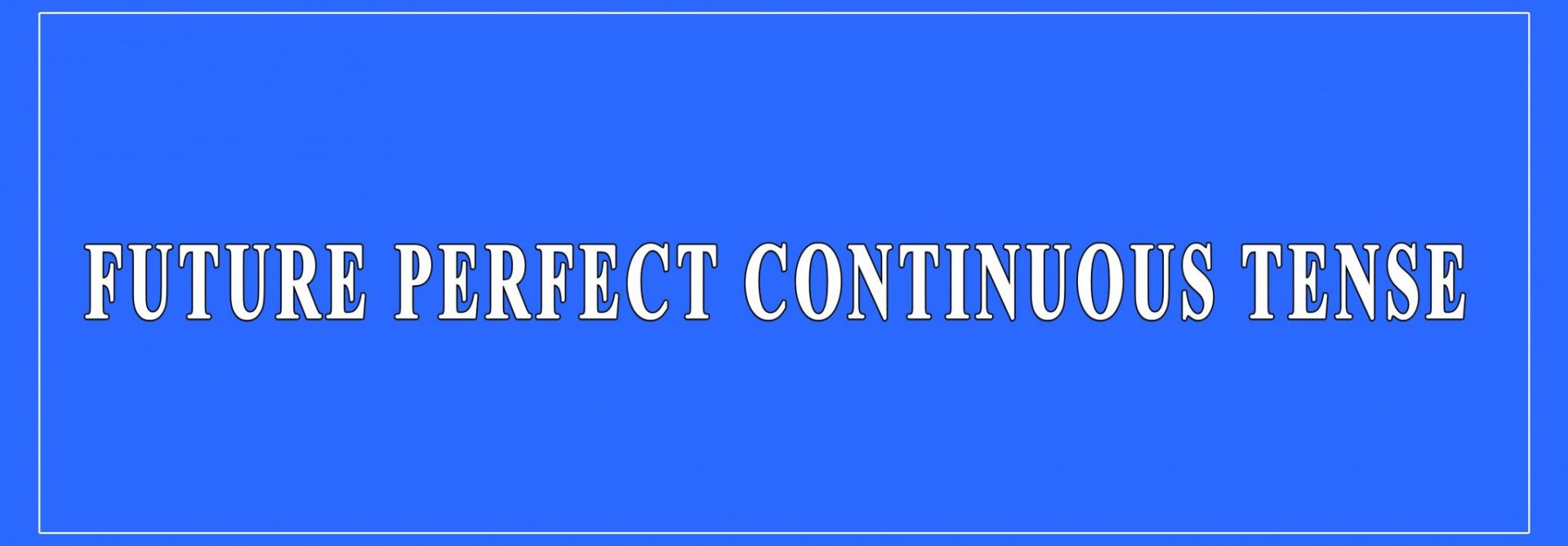We use the Future Perfect Continuous Tense to show that something will continue up until a particular event or time in the future.
“For five minutes,” “for two weeks,” are all duration which can be used with the Future Perfect Continuous. Notice that this is related to the Present Perfect Continuous and the Past Perfect Continuous; however, with Future Perfect Continuous, the duration stops at or before a reference point in the future.

Structure of sentence
Positive: (Subject + will have been + 1st form of verb + ing + Object +( time reference))
- You will have been waiting for more than two hours.
Negative: (Subject + will not + have been + 1st from of verb + ing + Object + ( time reference))
- You will not have been waiting for more than two hours.
Interrogative: (Will + Subject + have been + 1st from of verb + ing + Object + ( time reference) + ?)
- Will you have been waiting for more than two hours?
- They will have been talking for over an hour by the time Thomas arrives.
- She is going to have been working at that company for three years when it finally closes.
More uses of future perfect continuous tense:
FORM Future Perfect Continuous with “Be Going To”
Future Perfect Continuous has two different forms: “will have been doing ” and “be going to have been doing.” and usually they are interchangeable.
- You are going to have been waiting for more than two hours when her plane finally arrives.
- You will have been waiting for more than two hours when her plane finally arrives.
Cause of Something in the Future
Using the Future Perfect Continuous before another action in the future is a good way to show cause and effect.
- Jason will be tired when he gets home because he will have been jogging for over an hour.
- My English will be perfect when I return to Pakistan because I am going to have been studying English in the USA for over two years.
Future Continuous vs. Future Perfect Continuous Tense
If you do not include a duration such as “for five minutes,” “for two weeks” or “since Friday,” many English speakers choose to use the Future Continuous rather than the Future Perfect Continuous. Be careful because this can change the meaning of the sentence. Future Continuous emphasizes interrupted actions, whereas Future Perfect Continuous emphasizes a duration of time before something in the future. Study the examples below to understand the difference.
- He will be tired because he will be exercising so hard.
This sentence emphasizes that he will be tired because he will be exercising at that exact moment in the future. - He will be tired because he will have been exercising so hard.
This sentence emphasizes that he will be tired because he will have been exercising for a period of time. It is possible that he will still be exercising at that moment OR that he will just have finished.
REMEMBER No Future in Time Clauses
Like all future forms, the Future Perfect Continuous cannot be used in clauses beginning with time expressions such as: when, while, before, after, by the time, as soon as, if, unless, etc. Instead of Future Perfect Continuous, Present Perfect Continuous is used.
- You won’t get a promotion until you will have been working here as long as Tim. Not Correct
- You won’t get a promotion until you have been working here as long as Tim. Correct
AND REMEMBER Non-Continuous Verbs / Mixed Verbs
It is important to remember that Non-Continuous Verbs cannot be used in any continuous tenses. Also, certain non-continuous meanings for Mixed Verbs cannot be used in continuous tenses. Instead of using Future Perfect Continuous with these verbs, you must use Future Perfect.
- Ned will have been having his driver’s license for over two years. Not Correct
- Ned will have had his driver’s license for over two years. Correct

